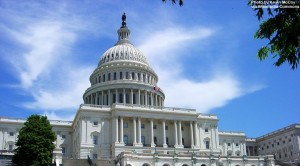UPDATED: International Religious Freedom Bill Signed by President, Includes Language to Protect Humanists, Nontheists

UPDATED DECEMBER 16, 2016: President Obama has signed the Frank R. Wolf International Religious Freedom Act into law.
“The American Humanist Association is proud to see this historic legislation signed into law and looks forward to working with the US Department of State to ensure religious liberty for non-theists and religious minorities abroad,” said Roy Speckhardt, executive director of the American Humanist Association. “That non-theists are now recognized as a protected class is a significant step toward full acceptance and inclusion for non-religious individuals, who are still far too often stigmatized and persecuted around the world.”
***
(December 15, 2016) The American Humanist Association celebrates the passage of HR 1150, the Frank R. Wolf International Religious Freedom Act, in the U.S. Congress, and urges President Obama to sign the bill into law. This legislation supports freedom of thought and religion and protects both theistic and nontheistic beliefs “as well as the right not to profess or practice any religion.” If signed into law, it will be the first law that includes the term “non-theist.”
The American Humanist Association lobbied both Democrats and Republicans for inclusive language in HR 1150 that would recognize the rights of humanists, atheists and other nonreligious individuals, in addition to defending theistic religious minorities. The Act states that “the freedom of thought, conscience, and religion is understood to protect theistic and non-theistic beliefs as well as the right not to profess or practice any religion.” The Act also condemns “specific targeting of non-theists, humanists, and atheists because of their beliefs” and attempts to forcibly compel “non-believers or non-theists to recant their beliefs or to convert.” The persecution of openly humanist and atheist writers has become an area of increasing concern especially after the string of murders of secular bloggers and publishers by religious extremists in Bangladesh. The American Humanist Association, along with other international advocates for religious freedom, have also been critical of the flogging of secular writers in Saudi Arabia, as well as a Saudi law that equates atheism with terrorism.
“Legislators are finally recognizing the human dignity of humanists and granting the nontheistic community the same protections and respect that have been given to religious communities,” said Roy Speckhardt, executive director of the American Humanist Association. “With the increasing global persecution of humanists and atheists at the hands of religious authoritarians, we’re proud that Congress and the US Department of State are standing for the liberty of all people, both religious and non-religious,” Speckhardt added, in reference to findings from the recent release of the International Humanist and Ethical Union’s 2016 Freedom of Thought report.
“A historic piece of legislation that for the first time in our nation’s history recognizes non-theists, the International Religious Freedom Act is the result of extensive advocacy efforts from the humanist community and the support of our religious allies,” said Matthew Bulger, legislative director of the American Humanist Association. “Religious freedom for all people, theists and non-theists, is an American value we must protect.”
Once signed into law, the International Religious Freedom Act will strengthen the standing of the International Religious Freedom Office and the Ambassador-at-Large for International Religious Freedom, and promote other actions meant to foster religious freedom abroad.
